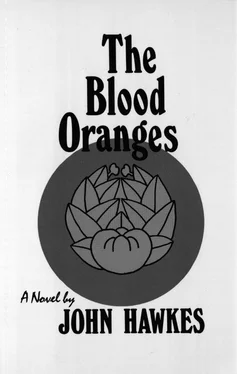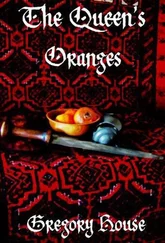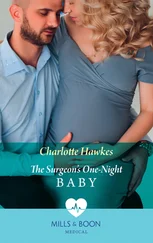“God, boy, I see what you mean …”
“Come on, Catherine,” I said and laughed, “your turn.”
“But what about Fiona?”
“That’s all right, baby. Catherine’s next.”
Hugh grinned, Fiona clapped her lean hands silently, I nodded encouragement. So up went Catherine on tiptoe and with her eyes open, her mouth open, her jaw thrust forward. But as soon as she encountered the first grape, felt the first grape bouncing with a will of its own against her upraised chin, Catherine shuddered, stumbled, looked at me with a long soft look of unmistakable recognition. Was this what I was thinking? Was the sensation she had just experienced the same as mine?
“You missed,” Hugh said. “Try again.”
“I lost my balance.”
“They’re only grapes,” I said under my breath. “Have some.”
“Nipples, boy, that’s what you mean.”
“Suit yourself,” I said, and laughed. “But they’re just grapes.”
Again I nodded, stuffing large hands into jacket pockets, and again Catherine stood on tiptoe and to my surprise began nuzzling and nudging the very cluster which, only moments before, I myself had abandoned to the green night. And there — her throat was exposed, her hair was loose, her lips were pursed, the crushed grape was going down. Only the mother of three children being a little silly in a fairly commonplace arbor in which, nonetheless, the fruit of the field grew ripe in the air? Yes, I thought, that was all. But I enjoyed the sight.
“Baby,” Fiona whispered, “did you see?”
“But what’s this, boy — arm around my wife’s shoulders?”
Yet even as I replied in kind to their rhetorical questions and pantomimed my congenial and self-evident assent, already Hugh was stretching like a man attempting to chin himself without the use of his hands, while Fiona’s cool white brow was rising to the touch of the grapes. Eyes disappearing among the leaves, lips in shadow. Catherine and I were watching them, of course, and Catherine was so turned that somewhere below my armpit I could feel the undeniable pressure of her right breast settled against my waiting side.
And Hugh? Fiona? Their heads were together temple to temple, one of his darkly trousered legs was canted across one of her bare legs, the grapes (the entire sagging arbor of pulpy grapes) were swaying and rippling to the sound of their laughter, the movements of their open mouths.
“Oh, baby, I want to nibble each one of them!”
So much, I thought, for the viscera of the cornucopia.
BAREFOOTED BUT OTHERWISE FULLY CLOTHED, HUGH leaps about waist-deep in the rough and sunny water with the short length of rotted rope tight in his hand and the small tar-covered boat lunging and rearing in slow circles. Fiona and the children tumble from bow to stern, four wet energetic figures bailing and attempting to transform a broken oar into an imaginary mast. Catherine and I sit watching from the brief pebbly incline of the hot beach. Hugh shouts in the spray, and for answer Fiona leans over the gunwale and thrusts down her faunlike and naked face. We wave.
Or I round the point and discover Fiona squatting in a rocky crevice with her face toward the sea, the tide at her feet, her back to the vertical ledges of pink stone. And on top of the little cliff that hides Fiona and safeguards her modesty sits Hugh — rigid, one leg drawn up and the other dangling in the clear air, his silent face peering down at us in raucous and privileged enjoyment.
Remember?
“WHAT’S THE MATTER,” I CALLED, “GETTING OLD?”
Though we had started out together and with every intention of remaining together throughout a day this timeless and bright and clear, nonetheless we had once again drifted into pairs and begun to separate, to pull apart long before reaching the commencement of the breakwater. By the time Catherine and I first set foot on the breakwater and moved out from the shore, Hugh had already swept himself and Fiona far ahead, the two of them long-legged and impetuous and receding, growing smaller, flaunting their eagerness and similarity of temperament until, flanked on either side by sun and sea, they had all but disappeared. Yet midway on the breakwater between shore, village, beached fishing boats and at the other extreme, the ruined fortress, suddenly the two of them, Hugh and Fiona, had seated themselves on a couple of flat white rocks where now they waited for Catherine and me, the slow strollers, to close the long clear empty space between us.
“Not as old as you are,” Hugh shouted back through the silence, and planted his single elbow, I saw, in Fiona’s lap.
“There’s no hurry,” I said to Catherine, and squeezed her hand. “Let’s take our time.”
“Why does he want to explore that ugly place?”
“God knows.”
But now that the village lay at our backs, there was nowhere to walk except forward across the high narrow breakwater into the open sea and toward the squat and ominous pile of dark stones that revealed in the midst of its wreckage the shape of the former fortress. How strong, I asked myself, was my empathy with Hugh’s present eagerness? What could account for the rather special quality of desolation that appeared to characterize the abandoned structure now awaiting the sound of our four voices, the cautious tread of our feet? When did an ordinary stroll become a compulsive quest? And why did I now identify that unspectacular and essentially uninteresting ruin with the dark caves of the heart? Self-imprisonment, which was what we appeared to be heading for, was hardly my own idea of pleasure. And yet I was beginning to feel something of Hugh’s elation. Today of all days my empathy with Hugh, I decided, was fairly strong.
“Does Fiona really want to climb around in there?”
“I suppose she does.”
“Well, I don’t.”
“We could have stayed with the children.”
“I’d never let him take Fiona in there alone.”
“Jealous?”
“If she goes, I have to go. That’s all.”
“Fiona might fool us both. You never know.”
“How?”
“But then,” I said more to myself than to Catherine, “it’s Hugh’s expedition. We’ll just have to wait and see where it leads.”
One glance backward, and I knew what I would see: dark hills, brief and distant panorama of tiled roofs and white-washed walls, black little boats ranged on the gray beach and, far to the south, the fragile landmarks of the funeral cypresses. And yet all this was gone and for us there was only severance, isolation, the sensation of proceeding outward from the familiar shore and into the uninhibited world of blue sky, black sea, penitential fortress. We might have been walking down a country road, Catherine and I, except that the rutted track we followed across the high surface of the breakwater was white, not brown, and was composed of rock and crushed shells, rather than of dusty earth, and carried us not safely among the olive trees but precariously across deep salty water and into the light that had no source. We shaded our eyes, looked out to sea. No wonder Hugh had insisted that the four of us wear rubber-soled shoes. No wonder he had packed his enormous khaki-colored rucksack with rope, torch, knife, rolls of bandage and bottles of disinfectant. But was this clear vista of peace and treachery, space and confinement, reason enough for Hugh’s excitement? I suspected not.
“Hey there,” Hugh called, “what do you think of it?”
“Interesting,” I called back, “but let’s stay together.”
“Graffiti, you two. Come look!”
“Can you read them, boy?”
“Sure can.”
“Oh, baby, what do they say?”
No doubt the large and indecipherable signs were the work of passing fishermen who in their crafty loneliness had used pieces of soft and chalky masonry to inscribe their private sex legends on these dead walls. Appeals to big-boned virginal women said to inhabit small green islands lying somewhere beyond the horizon? Songs to a young girl of our own village? Ribald declarations of one grizzled fisherman’s love for another and much younger fisherman? Whatever the content and whoever the lovers, for us these public testimonials remained no more than secret and unreal scrawls, since no sooner had I begun to gather Fiona and Catherine close to my sides, no sooner begun to scan the massive walls for clues to the specific sense of the abandoned messages, then Hugh was already shouting from the interior of this impressively dismal place and urging us to forget the graffiti and to follow him inside.
Читать дальше












